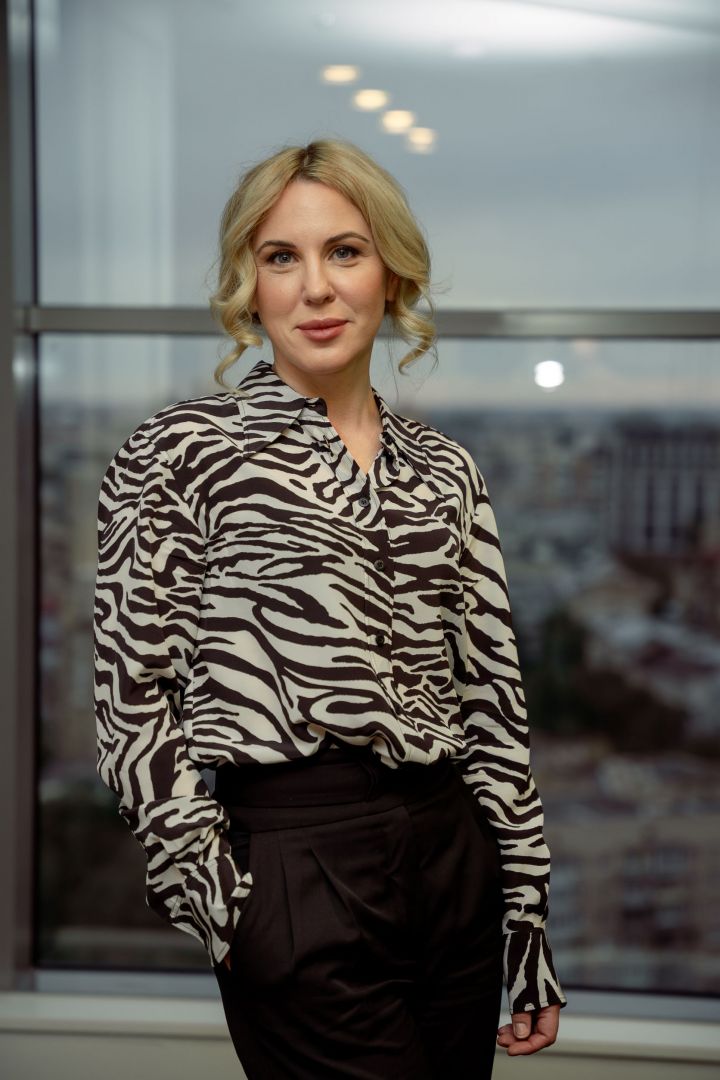Bring it yourself and sell it. Mariia Sitak about OSSOYO trading business, the search for customers in Europe and the export of agricultural products during the war
Agroholding "OSSOYO" is a "dark horse" on the Ukrainian agricultural market. The company with the original name has elevators, a malt plant, flour milling complexes, a poultry farm and 6 thousand hectares of land. But, despite this, "OSSOYO" is not the most famous market player from the point of view of media coverage. The managing partner of the company Mariia Sitak jokingly says that everyone who needs it in Ukraine knows the company.
Mariia and I meet in the center of Kyiv in the business center "Parus". During the interview, she has time to assign tasks to subordinates, conduct phone conversations with partners and solve a bunch of other urgent problems. But at the same time, we have a woman in front of us who warmly speaks about her team and tells how people charged her after February 24 and motivated her to move forward.
We talked about how "OSSOYO" works in war conditions and why the company opened a representative office in Bratislava, why Mariia would never put grain in polymer storage sleeves and has not taken loans from the bank for several years, as well as how the war broke plans for business expansion in Odessa.
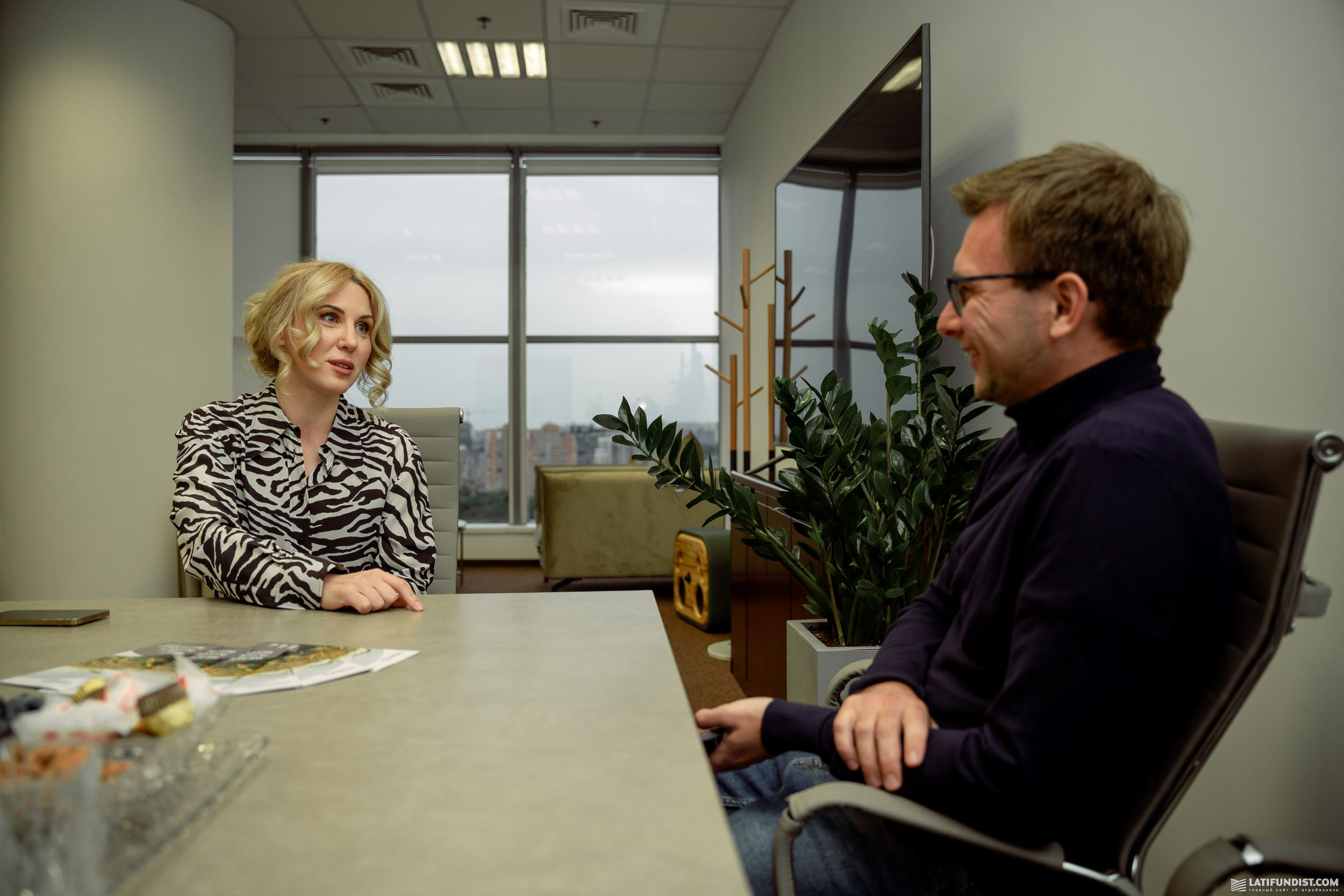
Latifundist.com: Tell me about your morning on February 24th?
Mariia Sitak: I was on a business trip to Bilhorod-Dnistrovskyi. The reconstruction of the elevator was taking place there, so I went to see how the work was being done. At 4 in the morning, my relatives and colleagues started calling me. Despite the fact that the country has been at war for 8 years, until the last it was not believed that Russia would launch a large-scale invasion. Although everyone said it was inevitable, embassies urged their citizens to evacuate. But there was faith that everything would be fine. Therefore, when the first blows were delivered, I did not have an alarming suitcase with me.
We, like all Ukrainians, have not slept since 4 in the morning. It was necessary to make a decision quickly, to evacuate workers from Kyiv. Now it is easier to talk about the events of those few days in February, but at the beginning it was very difficult. It was morally difficult. Our men somehow perceived the situation more easily, but the women were very emotional.
Latifundist.com: How did the team perform?
Mariia Sitak: I am very grateful to our team — the solidarity of people was impressive and inspiring. It was the team that gave me energy. They gave strength to work further, to move. Extraordinary support was felt from the workers on the ground, because they did not give up and tried to do their work all the time. Some joined the ranks of the Armed Forces of Ukraine, Teroborona, of course, we did not stop them and provided the necessary support.
Latifundist.com: After the ports were closed, how did you have to reconfigure the trading business?
Mariia Sitak: Romania, Moldova, Hungary, Poland - where I haven't been in the last six months.
Initially, they planned to work from Vienna, because many Ukrainian manufacturers moved there. Even the office began to be searched. At the same time, the possibility of working from Poland was considered, but this option also fell through due to the huge queues at the border. The drivers simply refused to go there. It is necessary to find drivers and transport, and then go through the inspection of the goods at the border, which takes a long time, due to the lack of a simplified mechanism for checking phytosanitary and veterinary certificates. In the end, we began to transport products through Hungary — this route seemed to be the most effective.
Latifundist.com: Have you opened an office in Europe?
Mariia Sitak: Yes, as I already said, we considered various options, but we stopped in Slovakia — in Bratislava. From all points of view, this country turned out to be the most convenient place for organizing effective work. Currently, there are 15 people working there who are engaged in trading and logistics.
Latifundist.com: You had customers in Europe even before the full scale invasion. Of course, it was necessary to look for new ones. Was this process quick?
Mariia Sitak: Everything happened very slowly. We have been working on the Ukrainian market for a long time and have gained a reputation as reliable partners. In Ukraine, you call: "Do you know this company?". In response: "I know, you can work with them." And this was enough to start cooperation. And the clients with whom we worked in Europe until February 24 have also been familiar for a long time. There was no need to somehow communicate information about its existence to the market. And when we were forced to move to work in Europe, we saw that clients are interested, because there is a demand for Ukrainian goods, but they are also wary, because they are used to working through intermediaries and do not know our companies. That is why the negotiation process turned out to be so difficult and long.
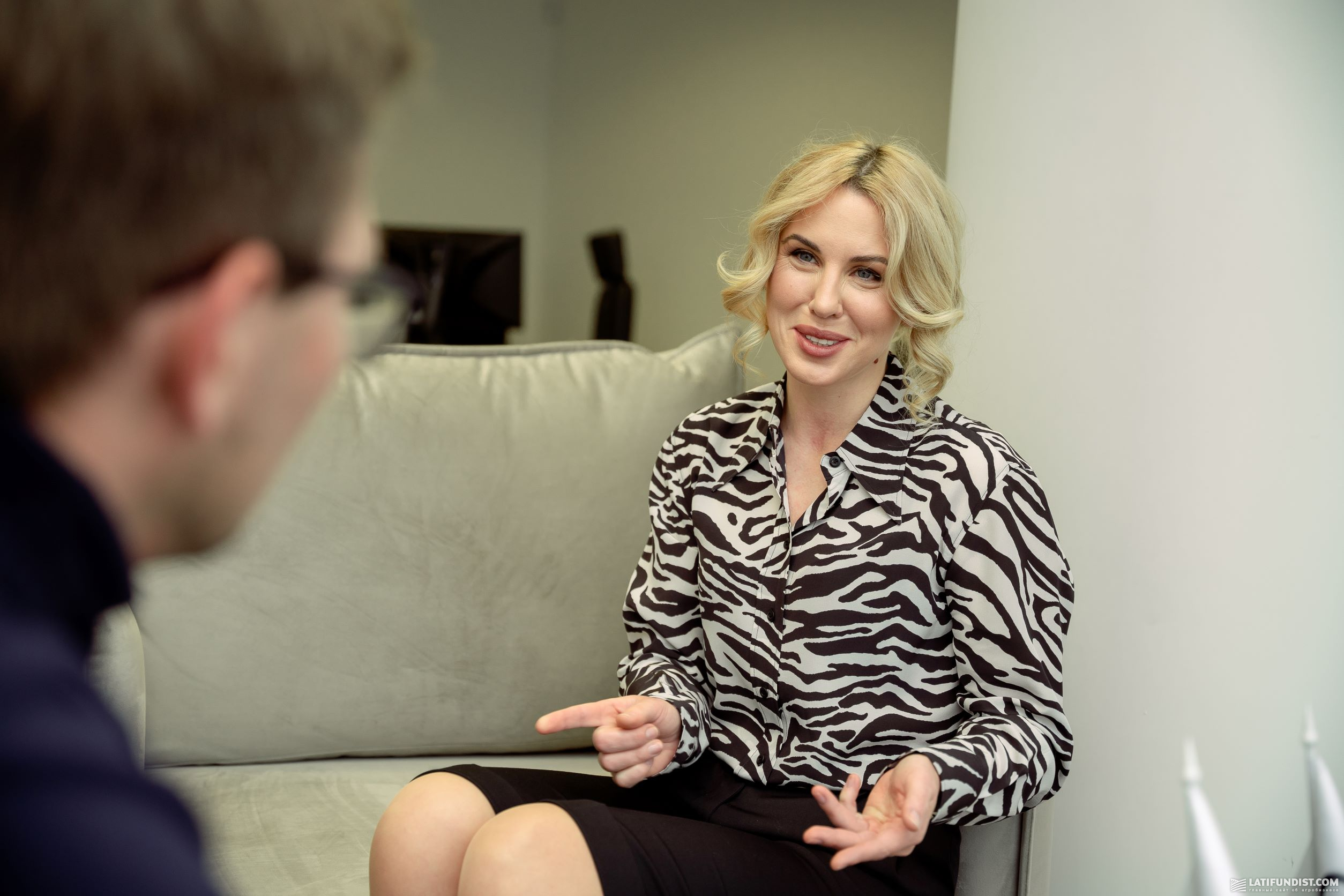
Latifundist.com: Have you ever thought about buying assets in Europe?
Mariia Sitak: Of course, various options were considered and calculated. But in Europe, there is now a crazy demand from Ukrainian companies for elevators, accordingly, their prices have risen several times. Rent prices have also increased. When you arrive at the object and look at its condition and infrastructure, you realize that it is not worth the money that is being asked for it. But due to impasse, many companies buy these assets. We are currently renting an elevator in Romania.
Latifundist.com: Do you start transporting grain through the ports of Great Odesa?
Mariia Sitak: Yes, as soon as the opportunity arose, we immediately began to transport grain through the ports. Since large trading companies are reluctant to enter the market, we started transporting and selling ourselves. Of course, this makes our work quite difficult, because we have a big burden on the company's financial system. Payment for the goods is made upon arrival. But we have found additional sources of funding for trading and currently have ambitious plans to increase the volume of exports.
Latifundist.com: Against the background of Putin and Erdogan statements that grain is sent "to the wrong countries ", Great Odesa may close. Are you considering such an option?
Mariia Sitak: We understand the possible risks, so we continue to work and develop exports in other directions. They just added Odessa. We ship handy sizes from 30,000. It is difficult to sell now, the FOB market has completely changed, potential buyers are not ready to take the risks of picking up the goods from the ports of Ukraine, they want it delivered to them.
Latifundist.com: How much does it cost you to charter ships?
Mariia Sitak: Freight is very expensive. The cost has increased by two, and sometimes by two and a half times.
Latifundist.com: Are you not surprised why grain prices did not rise significantly after the discovery of "deep water" as the market expected?
Maria Sitak: In Odessa, wheat prices are growing very slowly and are very far from prices on the world market. I attribute this to the very high cost of freight and the high risks taken by traders operating in ports. But gradually the situation should improve and grain suppliers will eventually be able to see better prices.
Latifundist.com: For logistics operators, these are "golden times"...
Mariia Sitak: Yes. And for traders, these are difficult times. If you do not get your bearings in time and quickly, there are all the risks of not fulfilling the contract.
Latifundist.com: Did you complete all your contracts?
Mariia Sitak: We have fulfilled all obligations to suppliers under contracts concluded before February 24 and already during martial law. It is very important for us to preserve our reputation, so we are prepared for financial losses, but we fulfill the terms of the contracts. Because it is not known whether grain corridors will work in November-December, whether all Ukrainian ports will be open. It is important for us to fulfill all obligations today. In Europe, too, everyone knows each other, and we would like them to respond positively to our work there. We clearly understand that the reputation of a reliable counterparty is capitalized in the long term.
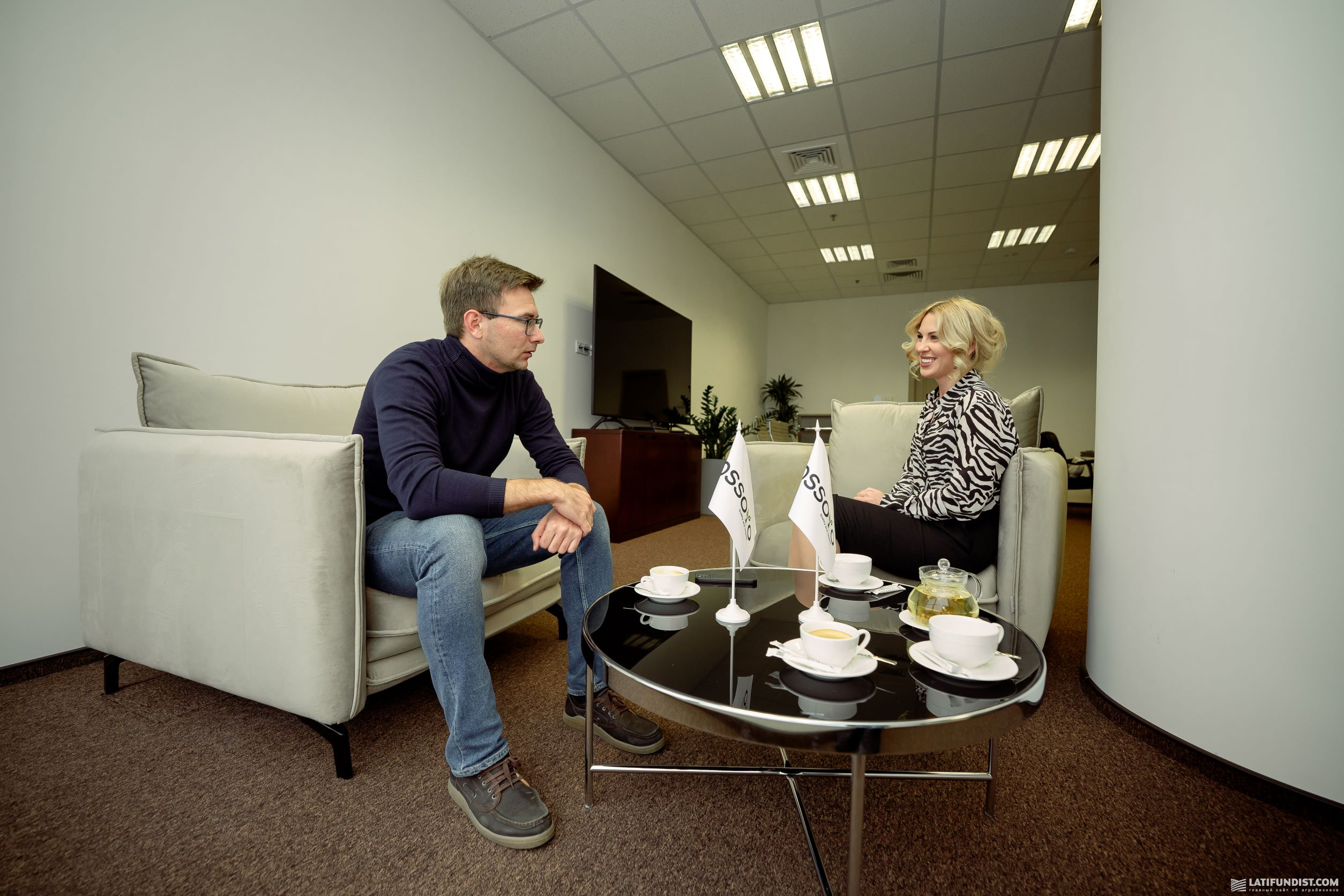
Latifundist.com: Now the main direction of work of "OSSOYO" is trading, because it brings income?
Mariia Sitak: In the conditions of martial law, it is difficult to say what brings income. Indeed, we try to focus on trading. It is quite difficult to move, but there are workers to whom we have to give work — at such a time, you cannot lay off someone or leave them without a job. Therefore, despite the difficulties, we decided for ourselves that we need to develop trading as much as possible and put even more load on the elevators. We are trying to work with even larger volumes of grain than those before the full-scale invasion.
Due to the difficult conditions of export of products through ports, we are diversifying export routes. We are looking for elevators in other European countries, except Romania, in order to transport grain there for storage and sell from there. This is exactly the problem that takes up most of our team's working time. We are looking for delivery options, wagons, and traction power across Europe. There are very few wagons, the traction force is also not in the best condition. Therefore, if we see that everything is standing in some area, we quickly reorient ourselves and look for ways to remove the grain so that it does not stand. We are changing the method of delivery, we are studying some other directions for ourselves.
Latifundist.com: Many people say that due to low grain prices, they will refuse to plant winter wheat. What will you sow this year?
Mariia Sitak: Before we sow, we look at the soil and the weather. Will we be able to sow wheat at a certain time or not? Can wheat bring us income in the next season? Sunflower, for example, can bring income, because it will be interesting to exporters and processors. But we will not give up wheat and barley either. Because, first of all, we need these crops in order to settle with the shareholders. Secondly, they are needed for crop rotation. But we definitely do not plan to sow rapeseed.
Although we do not have very productive lands, for example, in the same Zhytomyr Oblast, the yield largely depends on fertilizers. This year there will be a problem with fertilizers, because it is difficult to find and deliver them, and the price has increased many times.
Latifundist.com: A painful problem even for agricultural holdings is the theft of goods. An acquaintance from one holding once said that theft in agribusiness cannot be defeated. At some point, you have to come to terms with it and, if you understand that the costs of fighting theft exceed the possible losses, you have to close your eyes.
Mariia Sitak: Yes, it is a problem, but in general we got rid of it or at least reduced it to a minimum — we replaced agronomists, raised the wages of machine operators. I had an interesting case. Our mechanics know that their work is monitored by the security service, the combines and tractors are equipped with sensors and GPRS. As soon as we put it into practice, one of the mechanics came up to me and said: "Maria, I know how to cheat the system." "And how long did you sit to come up with this scheme," I ask. As it turned out, only two nights. And where were you before, so meticulous? Maybe you could come up with something useful for us! (smiles - ed. note).
And in general, our employees have good salaries. Yes, they also know that thefts are not welcome here, if they are caught, the reaction will be immediate.
Latifundist.com: Returning to the problems of the market. This year, the issue of grain storage will be relevant. How do you feel about storing grain in polymer storage sleeves?
Mariia Sitak: I would not dare to store grain in polymer sleeves. A lot of risks. Yes, sleeves have their advantages: they are also inexpensive, and you can safely store grain for one season. You may not dry the corn and put it in the sleeve while it is still wet. But I have friends who did this and then received low-quality grain. If this sleeve is damaged in any way, then moisture will get there and the grain will start to spoil. In addition, it is necessary to constantly take care of it, treat it against pests. Therefore, there are many risks. However, out of desperation, agricultural producers are forced to resort to such storage methods. As for me, I would look for an elevator in any case.
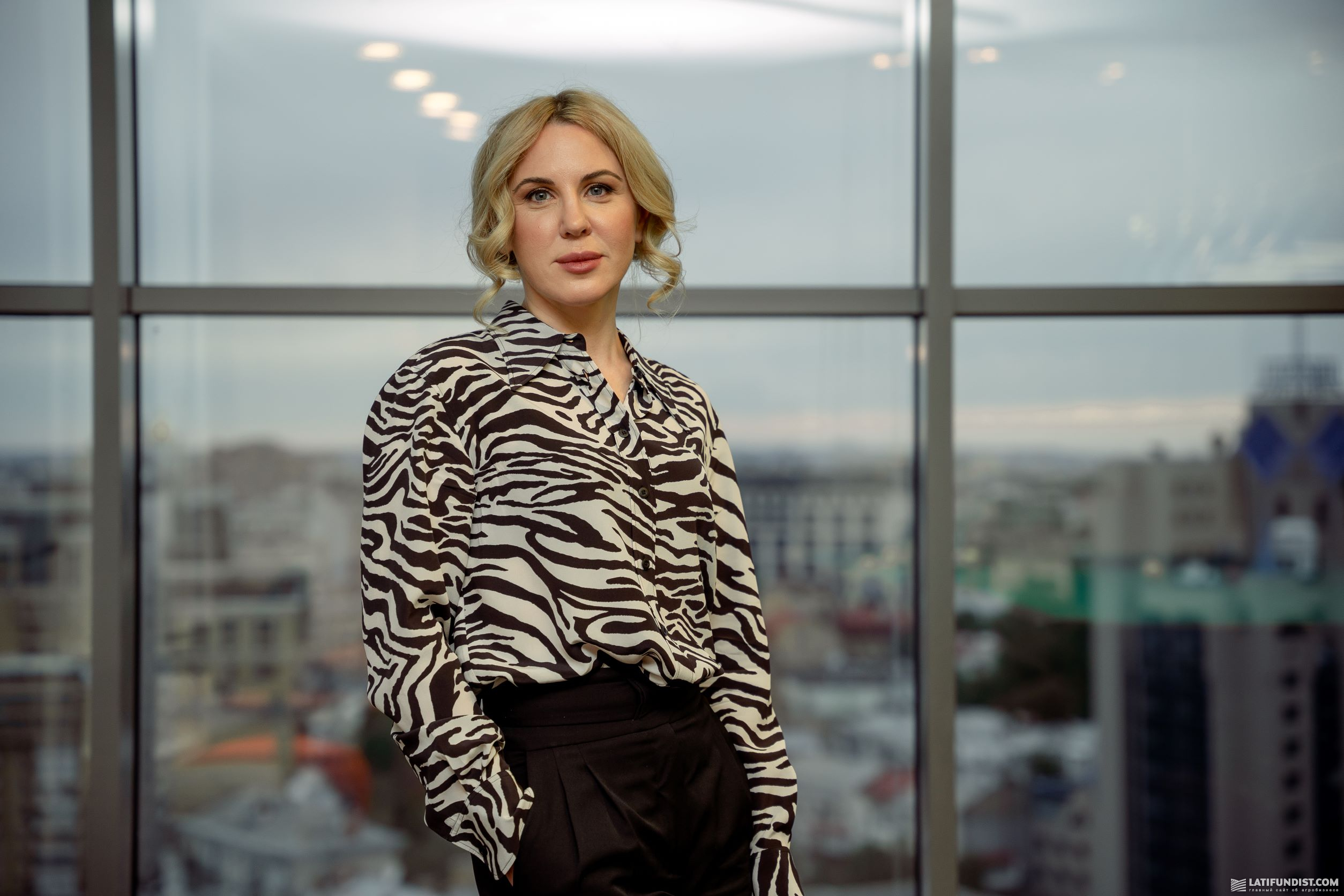
Latifundist.com: Where do you get funding for your business? Because agrarians now have many questions about the work of banking institutions: you have to pay interest on loans, despite the fact that the country is under martial law, or even that your assets are occupied.
Mariia Sitak: We have moved away from lending and have not taken loans for a long time. This decision was taken after the 2008 financial crisis. Today, we use only working capital for business development and reinvest the earnings.
Latifundist.com: Now the flour milling industry is going through not the best times, were you planning to abandon this asset?
Mariia Sitak: We have a mill together with an elevator, so it makes production quite cheap. And I'm not one of those people who will give up something if the situation is difficult. No one will buy this asset from us now, because the country's population has decreased, and the demand for flour milling products is falling. You need to find a way out. War is not forever. We all believe in the Armed Forces. We believe that this market will recover and start growing.
Latifundist.com: Another rather interesting asset is a poultry farm. What is the current state of affairs at the poultry factory?
Mariia Sitak: We have been engaged in the poultry farm for 7-8 years. When we started, we knew practically nothing about this business.
We used to produce eggs. Wee had 200,000 chickens. Over time, they figured out how to get a tasty egg, and had a huge demand from confectionery establishments.
In parallel, new workshops were built for growing broilers. After some time, we gave up eggs and switched to broilers.
And in general, it is very difficult to compete in this field with large companies. Small poultry farms simply cannot withstand the load. They do not have large cash reserves, resources. They invested what they earned for years in development. Therefore, many small businesses are now on the verge of bankruptcy. And we, as always, try to adapt to the circumstances and find points of growth.
Latifundist.com: You have a family company. Do you often argue with your father about how to properly conduct business?
Mariia Sitak: In addition to me and my father, relatives also work in the company. But we don't have someone commanding someone, interfering in each other's work. Therefore, apparently, there are no conflicts. When needed, we help each other. I have more logistics and trading. All other directions are coordinated by the father — an extremely hardworking and devoted man.
And as for disputes, there were such situations, as, probably, everyone has. But more, probably, it is a dialogue. I actually like it when you can argue constructively. Then another argument is given to your argument, and you think, maybe you were really wrong in something.
We don't have anything to prove to anyone. Maybe that's why everything is calm in the relationship. In general, family business is an interesting thing and difficult at the same time.
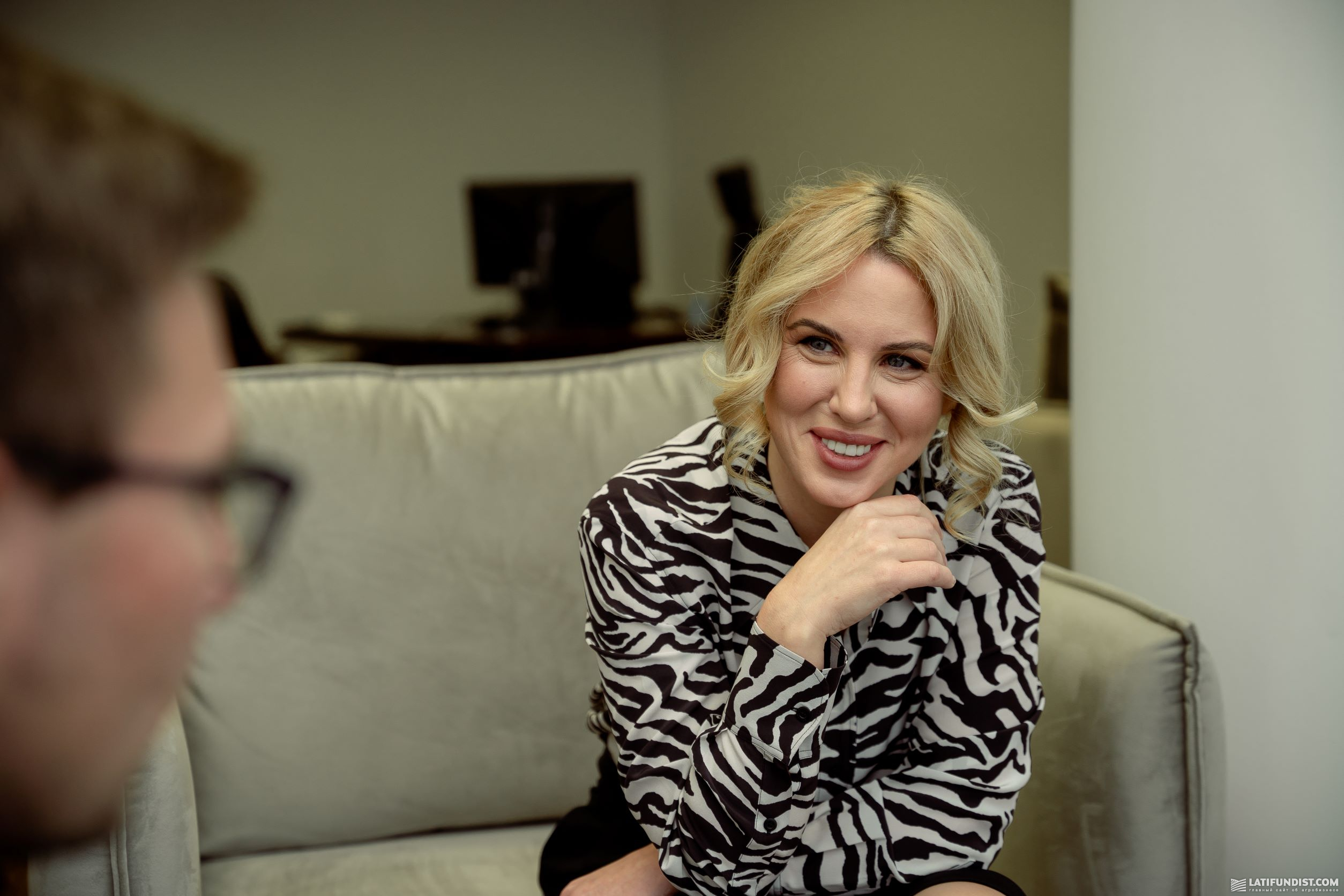
Latifundist.com: If not for the war, what would September be like for you?
Mariia Sitak: We would run the elevator in Bilhorod-Dnistrovskyi at full capacity. All grain from it would be shipped to Odessa. We could rent land in Odessa region. We also planned to develop the flour milling industry — we would ship flour from Odessa. There were many plans, as with all Ukrainians. And we will certainly implement everything, but first we must win the war and everyone must make maximum efforts for this!
Latifundist.com: Ok, so what are your plans for the next couple of months?
Mariia Sitak: I would not like to guess, but I really hope that they will launch a railway connection to the port of Galati. It has already been repaired. We are waiting for an answer from the border guards when it will be possible to go. We will be pioneers. They have already found a transshipment from a wide track to a narrow one. Now in Europe, many buyers offer their wagons. Demand for Ukrainian agricultural products is growing. In particular, due to the drought in the EU countries, there is currently a shortage of raw materials, and even some companies want to slaughter livestock, because there is nothing to feed them. That's why they need our grain.
Konstantin Tkachenko, Natalia Rodak, Latifundist.com

